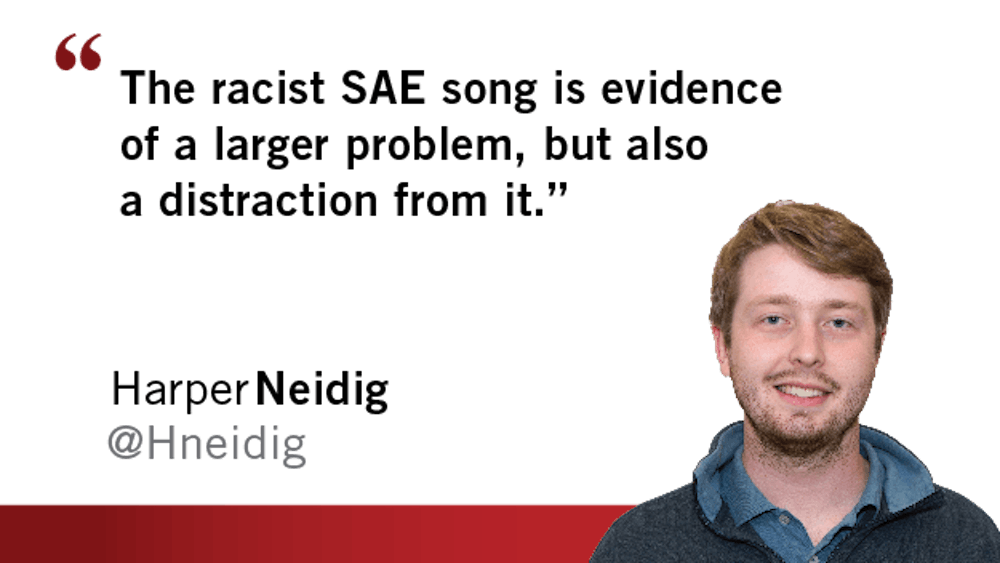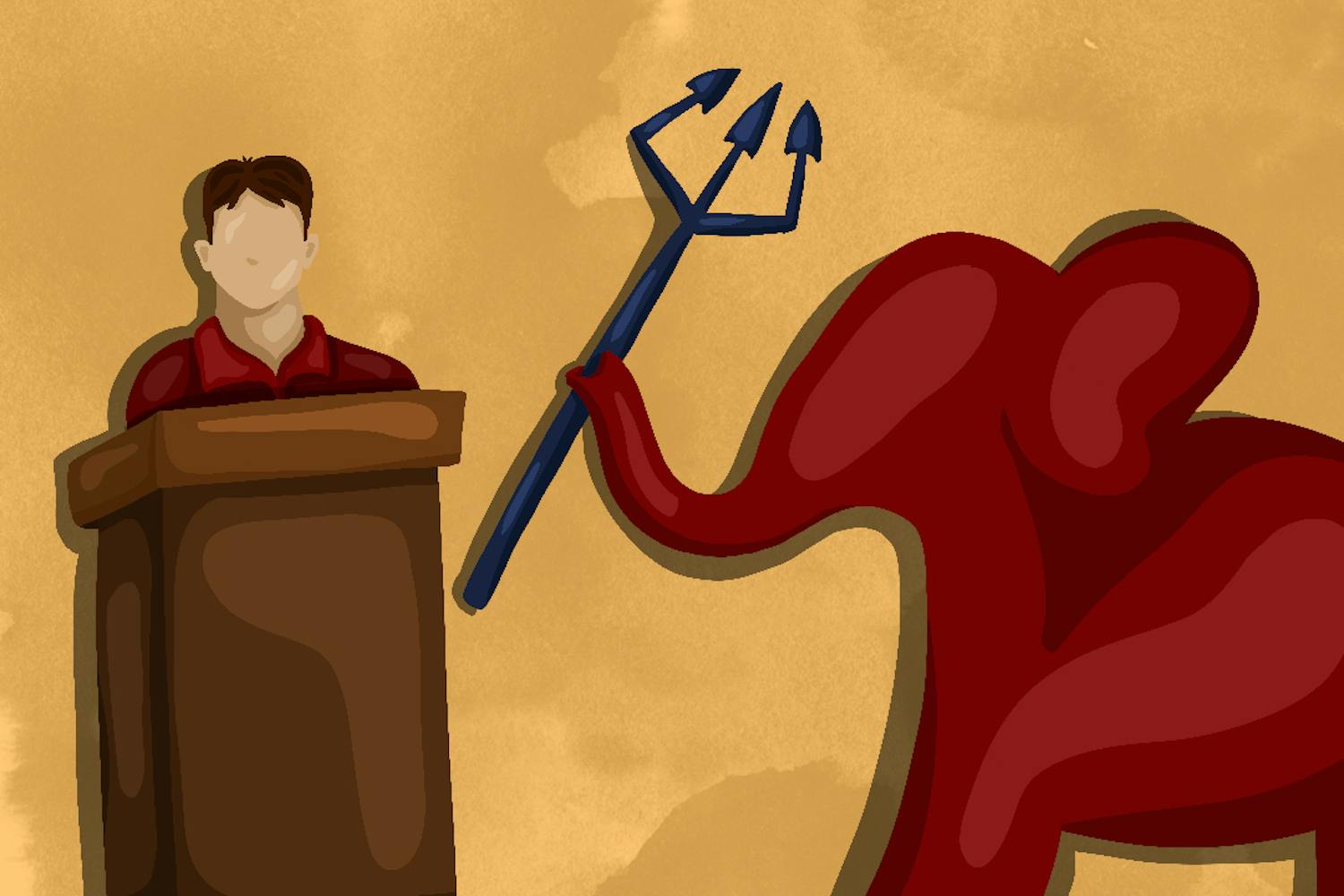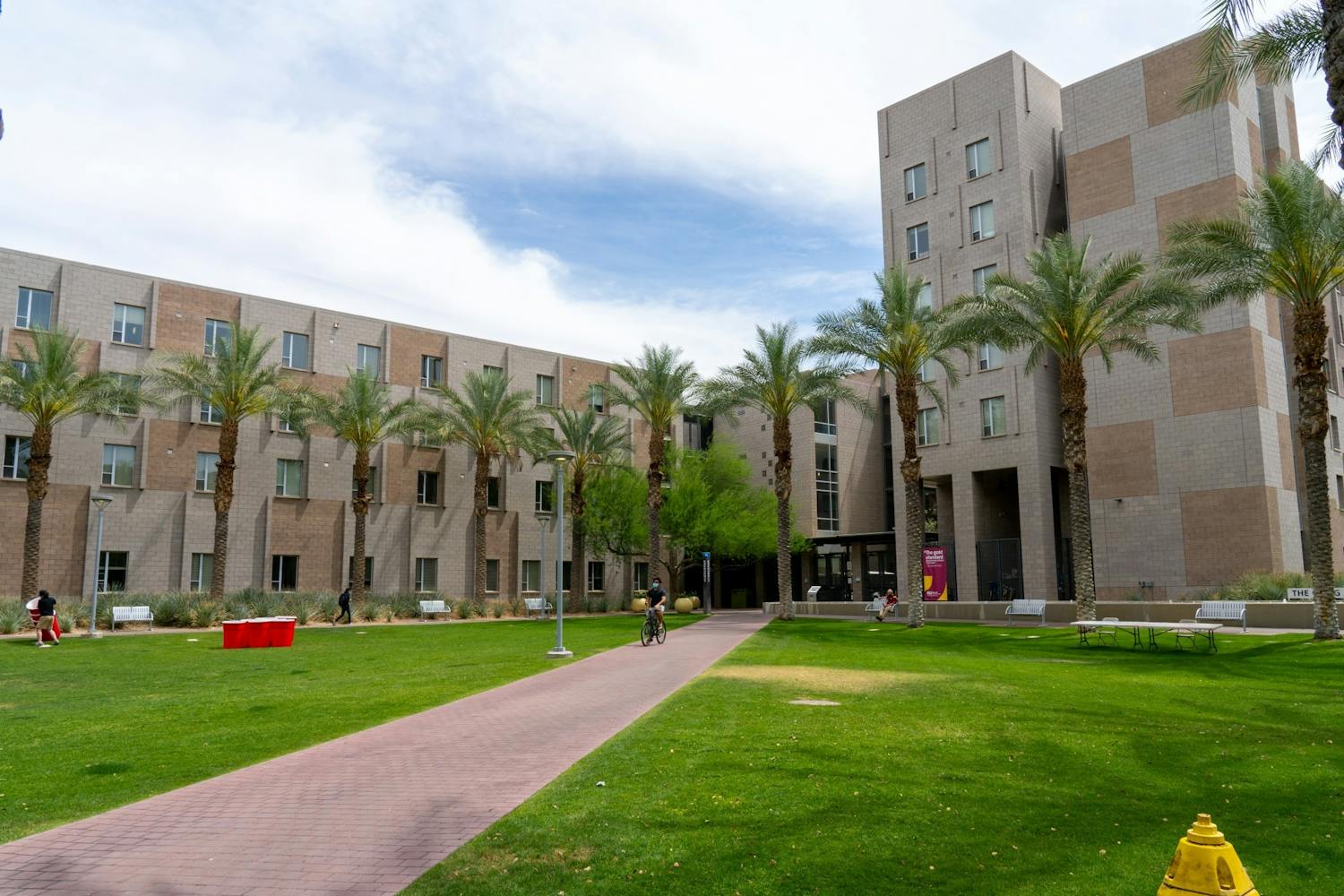The shocking footage of fraternity members in Oklahoma belting out their racist theme song has prompted universal condemnation. It has aroused bipartisan disgust and criticism in a spirit of unanimity that has become increasingly rare.
However revolting the footage may be, incidents where such unambiguous racism is put on display also has the effect of comforting us as a society. We’re given villains to vilify, and it reinforces the notion that racism is embodied in people that we can easily disassociate from ourselves. Those are the racists; they’re evil, they’re hateful and I would never say anything like that, so I’m clearly not one of them. It’s comforting to know that the disgusting things in the world are personified and can be seen on YouTube; they’re tangible but also distant and isolated.

It’s not so easy to accept that racism is systemic, that it pervades the foundation of our society and manifests itself in the use of state power. The Department of Justice recently released a report detailing the institutionalized practice of predatory policing in Ferguson that targets minorities to generate revenue from fines. This created an environment where the community was not seen by law enforcement as something to be protected, but as a target for extortion.
Unsurprisingly, it was Ferguson’s minorities that bore the brunt of these shakedowns. While black people make up 67 percent of the population, they receive 92 percent of all jaywalking tickets, they are the subjects of 85 percent of all traffic stops, and comprise 93 percent of all arrests. Black people were more likely to be searched by police than white people, even though contraband was more likely to be found in the possession of white people.
The police were not alone in this racist extortion racket. The efforts to generate revenue through heavy-handed policing was encouraged by city officials and further exploited by the local courts. As the Justice Department notes, “The court issues municipal arrest warrants not on the basis of public safety needs, but rather as a routine response to missed court appearances and required fine payments.” In a town of 21,000 people, 16,000 had an outstanding arrest warrant. Justice is unattainable in a city where the majority of the population is seen as criminals.
The release of the report coincided with the Justice Department’s decision not to bring charges against Officer Darren Wilson in the shooting of Michael Brown, effectively clearing him of all wrongdoing. But at this point, whether Wilson was justified is irrelevant. He belonged to a police department that sought to pillage black people instead of protect them. Whether Michael Brown’s death was an act of self-defense or outright murder, it was inevitable; it was the result of a mangled relationship between a community and a police department that exploited them.
These policies have come to light because of the increased scrutiny on the city of Ferguson. But Ferguson is not unique when it comes to these conditions, and there are cities that are far worse. This is a problem that affects cities across the country and is incompatible with both conservative and liberal notions of justice.
Moreover, institutional racism is not isolated to law enforcement. Housing discrimination has been by far the most effective method of oppressing and exploiting black people in the U.S. during the twentieth century. Donald Sterling, the former owner of the Los Angeles Clippers, made a fortune through his racist housing practices and was sued twice for it, yet he faced no serious public backlash until he was caught on tape telling his girlfriend not to hang out with black players.
The things he said were awful, but shouldn’t we be more focused on his racist policies that were really harmful than his offensive rhetoric? Donald Sterling and those college kids on a bus in Oklahoma are both simultaneously indicators of a larger problem as well as a distraction from it. These instances also reveal our own hypocritical tendencies. Almost everyone in the U.S. will express their anger and disgust when someone says the n-word, yet many will stand in solidarity with anyone who kills an unarmed black man. Until we make a serious effort to undermine institutional white supremacy we will continue to see racism manifest itself in both rhetoric and violence.
Reach the columnist at hneidig@asu.edu or follow @hneidig on Twitter.
Editor’s note: The opinions presented in this column are the author’s and do not imply any endorsement from The State Press or its editors.
Want to join the conversation? Send an email to opiniondesk.statepress@gmail.com. Keep letters under 300 words and be sure to include your university affiliation. Anonymity will not be granted.
Like The State Press on Facebook and follow @statepress on Twitter.




